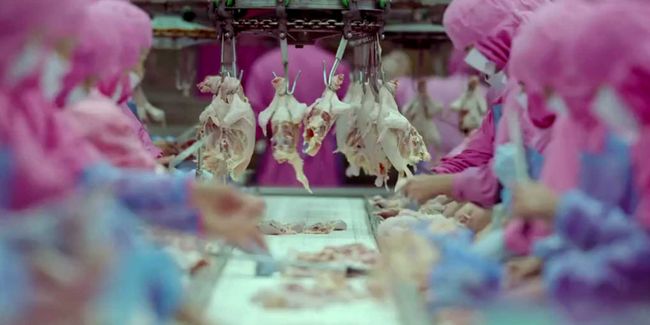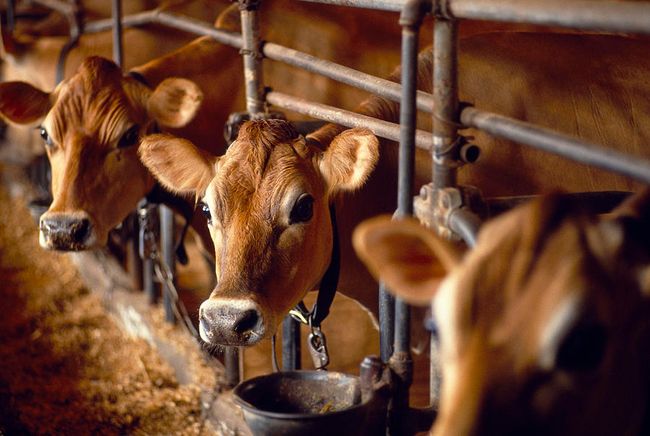EVENTS: The Ethics of What We Eat: Changing Food Systems in the US and China (03/19/2015)
Concerned about the corporate takeover of our food systems? Join us on Thursday, March 19, for a screening of What’s for Dinner? (Jian Yi, 2013, 27 min.) – a short documentary about the climate, public health, ethical, and human impacts of rapidly growing consumption of meat in China and the increasing industrialization agriculture. The screening will be followed by a conversation with the film’s producer, Mia MacDonald, executive director and founder of Brighter Green, a public policy action tank that works to raise awareness of and encourage policy action on issues that span the environment, animals, and sustainability, and Alex Blanchette, Assistant Professor of Anthropology and Environmental Studies at Tufts University and author of the forthcoming Porkopolis: Standardized Life, American Animality, and the “Factory” Farm. Moderated by Ben Siegel, Assistant Professor of History at Boston University.
The Ethics of What We Eat: Changing Food Systems in the US and China
Thursday, March 19 | 6 PM
BU College of Communication, 640 Commonwealth Avenue, Room 101
About the Film:
What’s For Dinner? (29 minutes, Mandarin and various Chinese dialects with English subtitles) examines the rapidly increasing consumption of animal-based foods in China that has mirrored the country’s swift economic growth in recent years. Average pork consumption has doubled over the past ten years, with both western and home-grown fast food chains becoming commonplace in urban centers and creating a $28 billion-a-year market in the country. None of this would be possible without the adoption of U.S.-style systems of intensive production.
But strains are showing: manure run-off from so-called “factory farms” housing thousands of pigs, chickens, and ducks is fouling groundwater and rivers; only two generations after a national famine killed millions, nearly a quarter of Chinese adults and a fifth of Chinese children are overweight or obese; and diet-related chronic diseases now kill more people in China than any other cause.
In the film, award-winning independent director Jian Yi captures the shift in how China eats and produces food through interviews with people across Chinese society – such as Zhou Shuzhen, a retired pig farmer from Jiangxi province; Wang Ronghua, a young livestock entrepreneur who’s expanding his pig and poultry farms; and Wen Bo, one of China’s leading environmentalists.
About the Participants:
Mia MacDonald is a public policy analyst and writer who has worked as a consultant to a range of international non-governmental organizations; including the Ford Foundation, the World Wildlife Fund, the Green Belt Movement, the Sierra Club, and Save the Children as well as several United Nations agencies, among others—on issues of environment, gender, sustainable development, women’s rights and gender equality, reproductive health and population, and conservation and animal protection.
Alex Blanchette is Assistant Professor of Anthropology at Tufts University. His current research projects are concerned with capitalist natures and the industrialization of labor and life in an allegedly post-industrial United States. His book-in-progress is situated in the workplaces and wake of some of the world’s largest integrated meat corporations, which annually produce 7,000,000 animals in a 100-mile radius region of the Great Plains.
Benjamin Siegel is Assistant Professor of History at Boston University, a historian of modern South Asia, with particular interests in the politics, economy, and culture of India, Pakistan, and Bangladesh. Professor Siegel is teaching a course this spring entitled “Taste Culture and Power: The Global History of Food.”




